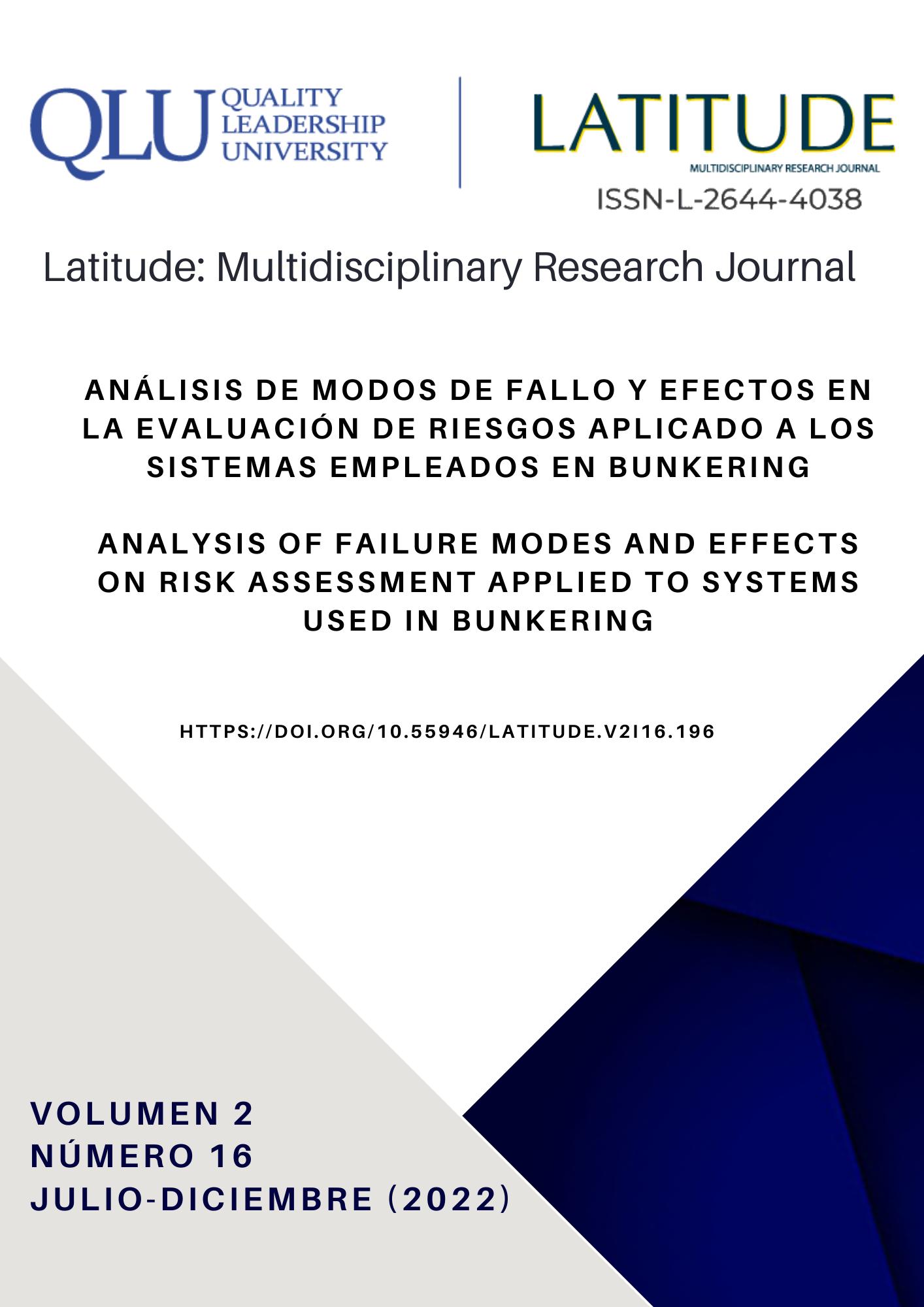

This work is licensed under a Creative Commons Attribution-NonCommercial-ShareAlike 4.0 International License.
Esta obra está bajo licencia internacional https://creativecommons.org/licenses/by-nc-sa/4.0/deed.es
La revista (y sus contenidos) emplean las licencias Creative Commons, específicamente la del tipo CC BY NC SA 4.0, la cual establece que “el beneficiario de la licencia tiene el derecho de copiar, distribuir, exhibir y representar la obra y hacer obras derivadas siempre y cuando reconozca y cite la obra de la forma especificada por el autor o el licenciante”. La licencia del tipo CC BY NC SA 4.0 contempla tres categorías,
- Atribución.
- No Comercialización de la obra.
- Compartir igual
Los lectores son libres de:
- Compartir — copiar y redistribuir el material en cualquier medio o formato
- Adaptar — remezclar, transformar y construir a partir del materialLa licenciante no puede revocar estas libertades en tanto usted siga los términos de la licencia
- Siempre y cuando se respeten y contemplen la atribución de autoría y la no comercialización del material.
Abstract
In maritime transport activities, various methods and techniques are used to assess the risks of operations, where a broad classification corresponds to simplified methods and complex methods, such that the complex are sub-classified into qualitative and quantitative. In bunkering or barge-ship fueling operations, both simplified and complex methods are used, each with its particular characteristics, but in common they all seek to assess risks by offering data and information, which allow the generation of plans and actions to eliminate or minimize incidents and accidents in these operations. This research work studied the complex qualitative method called failure modes and effects analysis (FMEA) applied to bunkering, following a descriptive-level documentary-type methodology, in other words, the analysis was qualitatively described of failure modes and effects in the risk assessment applied to the systems used in the fuel loading operation called bunkering. The search, selection and content analysis on the study event of the units or documents, which as a result were 8, was carried out in 2020. The categories established for the thematic analysis emerged from the theoretical review of the works of authors such as the International Marine Contractors Association [IMCA], International Maritime Organization [IMO], International Naval Surveys Bureau [INSB], among the most prominent. One of the conclusions of the study is: the most common effects resulting from the analysis are the partial or total loss of the functionality of the component, subsystem or system in general; fuel clogging, spillage or contamination; possibility of fire; impossibility of establishing communication between the barge and the ship, and between the personnel of the same barge; and loss of fuel pump pressure.
Keywords:
References
Alfonso, I. (2018). Operaciones de bunkering: B/T Spabunker Sesentayuno. Trabajo de Fin de Grado. Universidad de La Laguna. Escuela Politécnica Superior de Ingeniería. Recuperado de: https://riull.ull.es/xmlui/handle/915/9220
Arias, F. (2012). El proyecto de investigación. Introducción a la metodología científica. Sexta Edición. Editorial Episteme. Caracas
Calvo, J. (2015). Análisis comparativo de metodologías de evaluación de riesgos. Trabajo de Grado de Maestría. Universidad de Zaragoza. Facultad de Derecho. Recuperado de: https://zaguan.unizar.es/record/46990/files/TAZ-TFM-2015-1145.pdf
Camarero, Alberto, López, C., Camarero, Alfonso y González, N. (2011). Los servicios de bunkering en los puertos. Revista de Obras Públicas. N° 3519, pp. 31-40. Recuperado de: http://ropdigital.ciccp.es/pdf/publico/2011/2011_marzo_3519_03.pdf
De Larrucea, J. R. (22 de enero 2015). Hacia teoría general de la seguridad marítima. Discurso de ingreso en la Reial Academia de Doctors. Recuperado de: https://raed.academy/wp-content/uploads/2015/02/Discurso-Dr.-Rodrigo.pdf
International Marine Contractors Assosiation, IMCA (2016). Guidance on Failure Modes and Effects Analysis (FMEA). IMCA M 166 Rev. 1. Recuperado de: https://www.imca-int.com/publications/179/guidance-on-failure-modes-and-effects-analysis-fmea/
International Maritime Organization (5 de Abril 2002). Guidelines for formal safety assessment (FSA) for use in the IMO rule-making process. MSC/Circ.1023. MEPC/Circ.392. London. Recuperado de: http://www.imo.org/en/OurWork/HumanElement/VisionPrinciplesGoals/Documents/1023-MEPC392.pdf
International Naval Surveys Bureau [INSB] (4 de Mayo 2010). Guide for Risk Assessment. ISM – ISPS Systems Dpt. Recuperado de: https://www.insb.gr/sites/default/files/INSB-Guide_for_Risk_Assessment.pdf
Méndez Suárez, Ch. (2015). Bunkering. Trabajo Fin de Grado. Universidad de La Laguna. Recuperado de: https://docplayer.es/72151710-Trabajo-fin-de-grado-curso-bunkering-tutor-antonio-j-poleo-mora-alumna-cheyenne-mendez-suarez-grado-nautica-y-transporte-maritimo.html
Quintana, D. (2019). Operaciones de bunkering: B/T Petrobay. Trabajo de Fin de Grado. Universidad de La Laguna. Escuela Politécnica Superior de Ingeniería. Recuperado de: https://riull.ull.es/xmlui/bitstream/handle/915/5939/OPERACIONES%20DE%20BUNKERING%20EN%20EL%20BT%20PETROPORT.pdf;jsessionid=2066ED7AAC645F0AE220CAB009A21ADF?sequence=1
Romero Faz, D. (2017). Metodología para la evaluación del riesgo en instalaciones portuarias. Tesis Doctoral. Universidad Politécnica de Madrid. Escuela Técnica Superior de Ingenieros de Caminos, Canales y Puertos. Recuperado de: http://oa.upm.es/48680/1/David_Romero_ Faz.pdf
Rubio Romero, J. (2000). Gestión de la prevención y evaluación de riesgos laborales. Implantación en la industria de Málaga. Tesis Doctoral. Universidad de Málaga. Escuela Técnica Superior de Ingenieros Industriales. Recuperado de: http://www.biblioteca.uma.es/bbldoc/tesisuma/16283247.pdf
Salazar, J. (2018). Operaciones de bunkering en el Estrecho de Gibraltar – Gibunker 100. Trabajo de Fin de Grado. Universidad de La Laguna. Escuela Politécnica Superior de Ingeniería. Recuperado de: https://riull.ull.es/xmlui/bitstream/handle/915/13422/OPERACIONES%20DE%20BUNKERING%20EN%20EL%20ESTRECHO%20DE%20GIBRALTAR%20%BF%20GIBUNKER%20100%20.pdf?sequence=1
Salazar López, B. (2019, noviembre 1). Análisis de Modo y Efecto de Fallas (AMEF). Ingeniería Industrial Online. Recuperado el 30 de marzo de 2020 de: https://www.ingenieriaindustrialonline.com/lean-manufacturing/analisis-del-modo-y-efecto-de-fallas-amef/
















